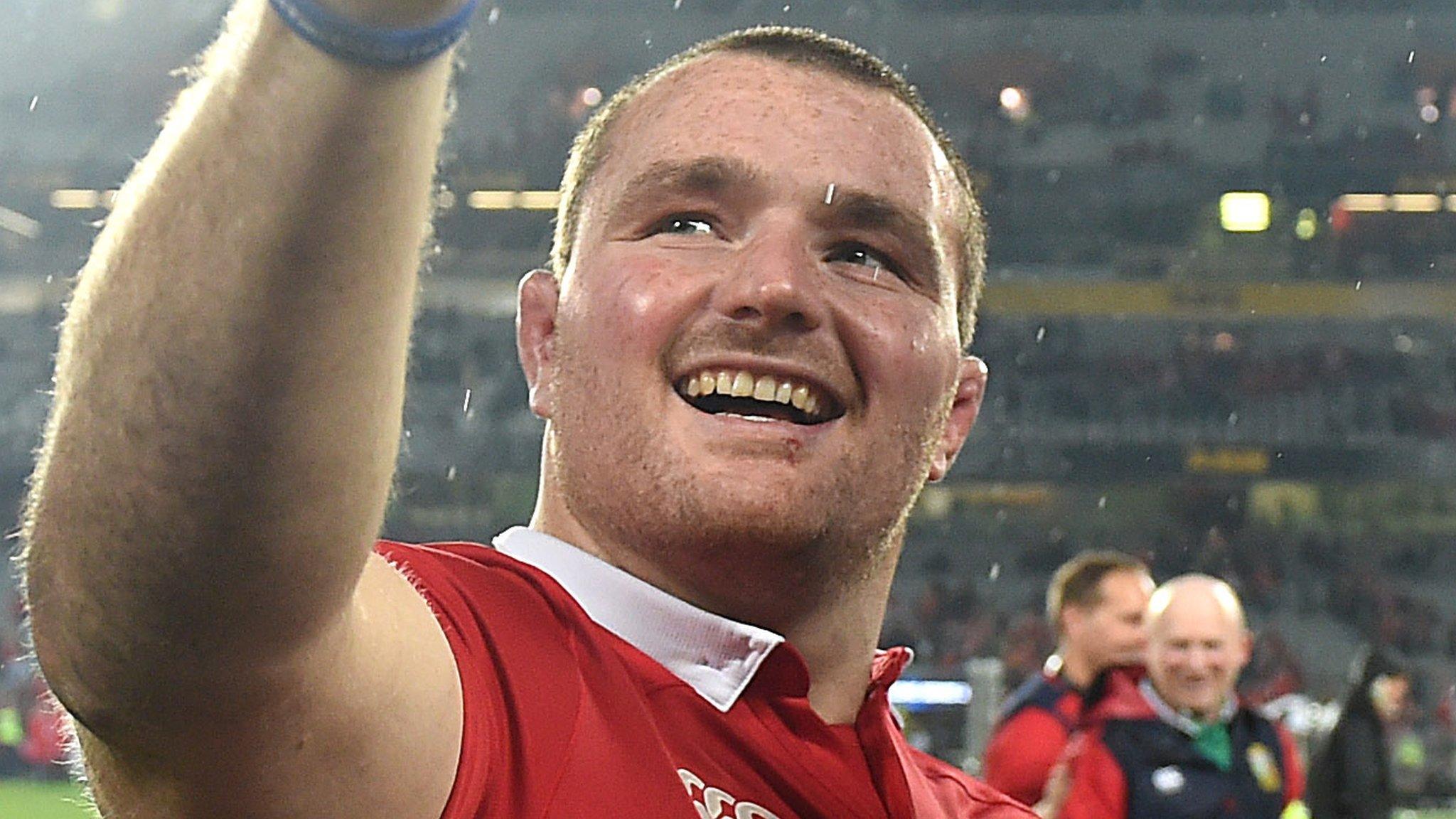Pro12: Addition of Cheetahs and Kings 'needs to succeed' amid financial pressures
- Published
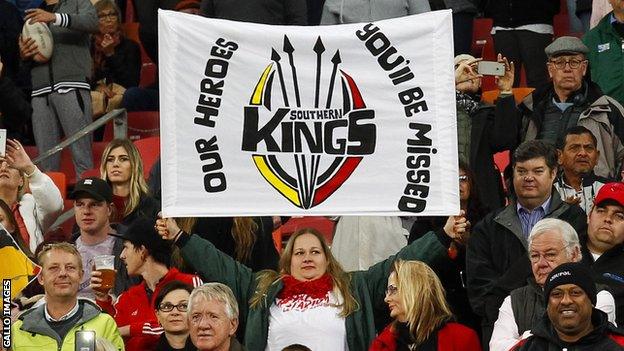
Fans thought they were saying goodbye to the Southern Kings when they played against Cheetahs
When word came out of South Africa on Tuesday that the new Pro14, including the Kings and the Cheetahs, was a done deal for the coming season the reaction varied depending on which part of the world you happened to be in.
In South Africa, the news was greeted warmly, particularly in Bloemfontein, home of the Cheetahs, and Port Elizabeth, home of the Kings. Having been dumped from next season's Super Rugby competition, the pair of them have been yanked from death's door.
If there's uncertainty surrounding the championship they're entering it's as nothing compared to the fears they had when extinction was beckoning. This is a victory for their fans and players.
Closer to home, there was confusion and doubt. Expansion seems to have happened at breakneck speed. Supporters are finding it hard to get their heads around it.
Fourteen teams in two conferences of seven? Why? Two weak South African sides? Again, why? What's the point?
How will throwing in two sides that have no connection with northern hemisphere rugby add to the competitive nature of the competition?
The Pro12 needs to be about genuine edge and rivalry. To many voicing their opinion on social media, this smacks of a watering-down of those very qualities. A manufactured solution to bringing in a few bob.
What's happening here?
The bottom line in all of this is money. The main goal is not so much about strengthening the quality of the league - although that's obviously an aim - it's about getting access to new cash in the increasingly expensive world of professional rugby.
It's about getting more finance in an attempt at not being lapped by the truly moneyed clubs of England and France.
A deal was struck in Dublin on Tuesday to admit the Cheetahs and the Kings. Next week should bring a public announcement that the Pro14 has been born.
The fixture list could follow the week after next. The season will begin in early September.
The speed in which this plan has been put together is extraordinary. The South Africans have committed to a six-season deal and will deliver about £6m per season to the new league, mostly through their domestic television rights. It may be small-time money compared to the riches on offer in club rugby in England and France, but it's much needed.
It's a 50% increase on what the Pro12 currently makes from TV rights. It's £36m over six years.
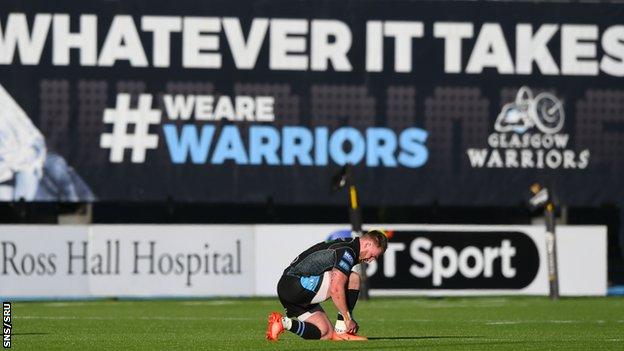
Glasgow Warriors had to pay big money to keep Scotland full-back Stuart Hogg
There will be scepticism about the format - and, in some cases, outright condemnation and forecasts of the death of the league - but the finances of this have to be taken into consideration in any analysis. This league desperately needs to bring in more money.
Why is the cash so badly needed? Because the pro game is becoming wildly expensive and it's only heading in one direction.
With so much money in England and France, it's getting harder for the Scottish, Welsh and Irish teams to hold on to their marquee players. They need more financial firepower to either persuade a star to stay or persuade a player of similar ability to join.
When, for instance, Stuart Hogg won player of the year in the 2016 Six Nations, two things happened: he announced himself as a player of world stature while simultaneously making himself an attractive proposition for richer clubs.
The Scottish Rugby Union had to break the bank to keep Hogg at Glasgow Warriors as a consequence. This is the by-product of success. The unions in Wales and Ireland could tell similar tales.
Though nothing has happened as yet, the SRU will be anticipating a move from England or France for fly-half Finn Russell at some point. Every last penny helps the process of trying to keep their top players at home.
The likely format
Three different structures have been mooted, but the two-conference system looks like the probable winner. Two groups of seven teams - two Irish, two Welsh and one each from Scotland, Italy and South Africa in each conference - play each other home and away. That's 12 games.
All teams from conference one play all teams from conference two. That's another seven games, making it 19. There will be two extra derby games on top of that - the 1872 Cup, for instance, will be a three-game affair - to bring the total to 21.
Then there's play-offs. This is not written in stone, but the top side from each conference advance to the semi-finals.
Teams placed second and third in each conference play each other to determine the other two semi-finalists. A South African side can win the Pro14 but cannot qualify to play in the Champions Cup.
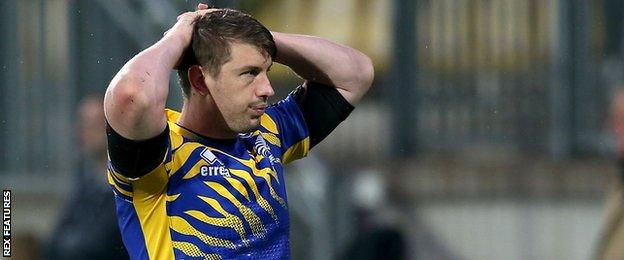
Zebre finished bottom of the Pro12 and are having financial problems
Sources in South Africa say they're aware that the Cheetahs and the Kings have been dismal in Super Rugby and a repeat of their performance of recent seasons would do horrendous damage to those trying to rebrand the Pro14.
The South Africans intend to boost their teams' squads even if they have to move players from their other franchises. That may not happen in season one of the Pro14, but it should happen in season two and beyond.
By then, the Pro14 could look even more different. There is said to be a "70% chance" that an American franchise, possibly based in Washington, will join the competition next season.
This could be at the expense of Italians Zebre, who are in perpetual crisis. It was reported on Tuesday that their players have not been paid in two months. Zebre appear to be in an extremely parlous state.
What happens next?
We wait for the lawyers to pore over every last document, which will take place next week. Then the formal announcement will happen and the process of selling the new competition will begin.
The Pro14 will need a mountainous promotional budget on that front.
In South Africa, there may be relief at seeing their teams saved and excitement about seeing what they might achieve in the new competition, but here, the dominant mood is apprehension.
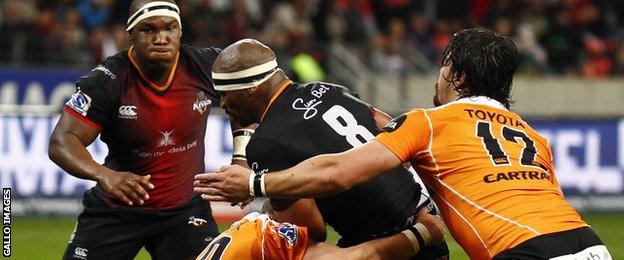
Cheetahs finished 13th and Southern Kings 11th in this season's Super Rugby
The Pro12 board has built a bridge to South Africa, but they're also going to have to break down a wall to convince many of their core supporters that this thing can work.
As one source said on Tuesday: "We know there are a lot of misgivings out there, but it's not a case of wanting this to succeed, it's a case of needing it to succeed.
"With the way the rugby world is going - with so much money in other leagues - there's no other option for any of us. We have to adapt and we have to make a success of this."
- Published19 July 2017
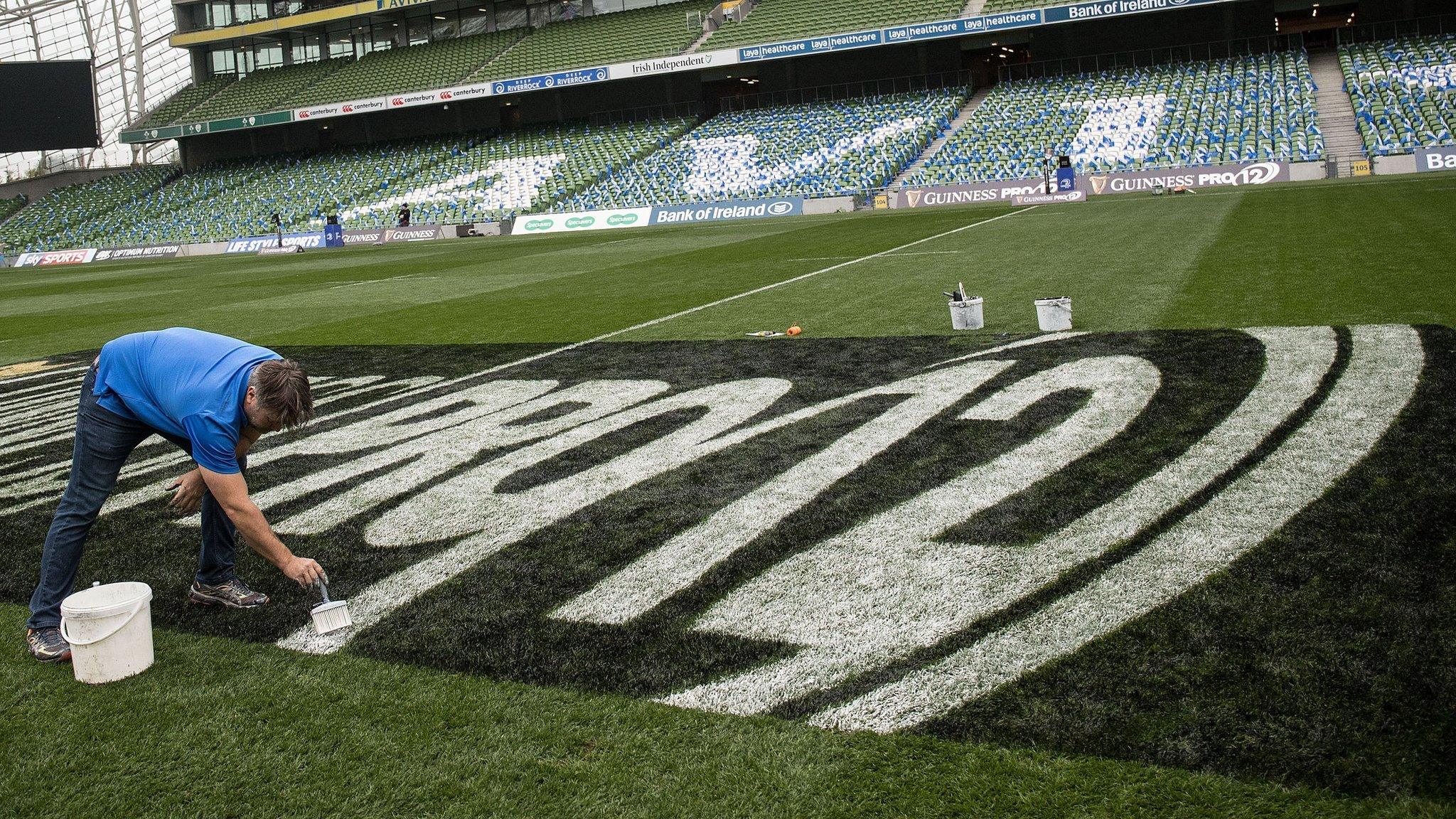
- Published18 July 2017
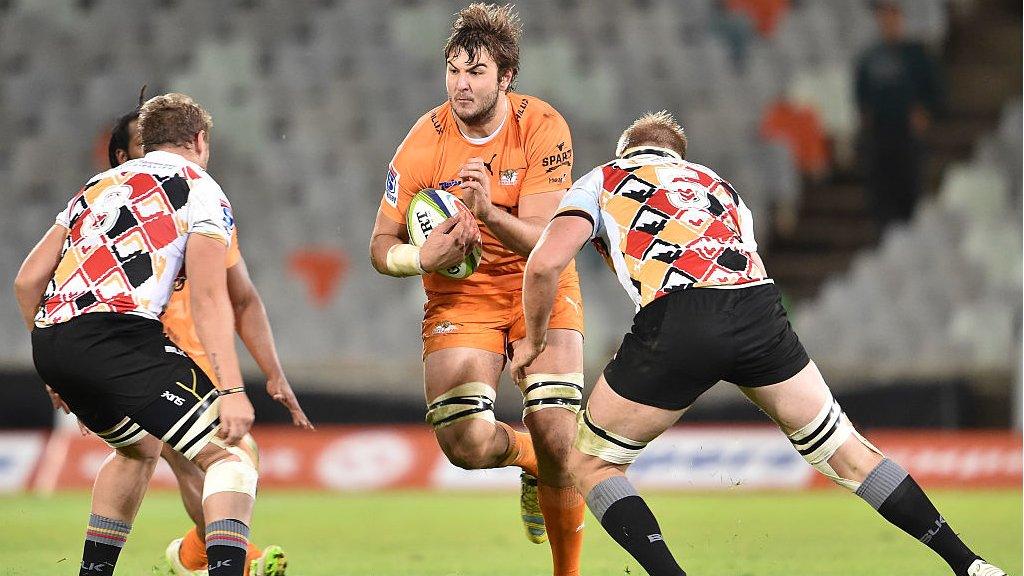
- Published2 August 2017
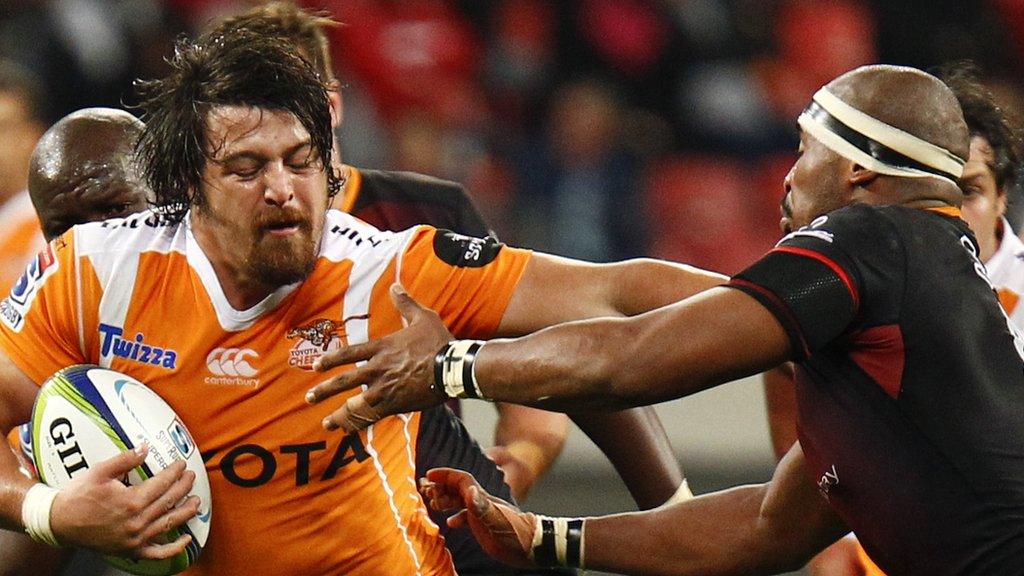
- Published13 July 2017
